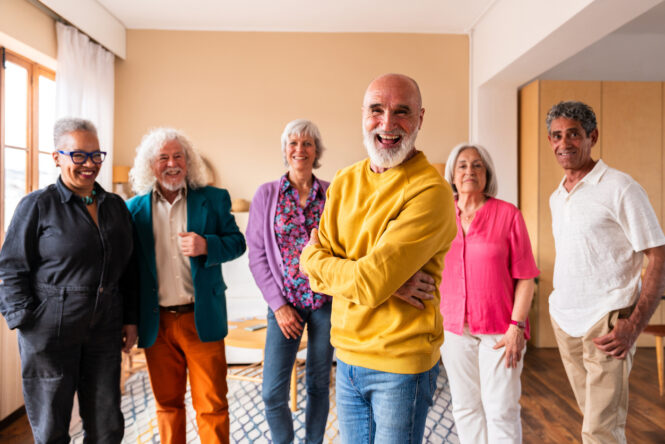
Getting your life back on track doesn’t always come with a dramatic breakthrough or some sweeping announcement. Sometimes it’s more subtle than that — like realising you’ve actually folded the laundry on the same day you washed it, or that you’re not avoiding texts anymore. It’s in the little choices, the tiny changes that start stacking up until one day, you realise you feel a bit more like yourself. Here are some small but clear signs you’re quietly getting back on the right path.
1. Your mornings don’t feel like chaos anymore.
You’re not waking up in a panic or playing whack-a-mole with your alarm. Maybe you’ve even started brewing coffee before checking your phone—wild. You’re still tired, but there’s a little more structure creeping in. When mornings stop feeling like a sprint and start feeling like something you can actually manage, it’s a good sign. You’re creating space, and that changes everything about how the day flows.
2. You’re replying to messages without dread.
The unread texts aren’t haunting you as much. You’ve stopped doing the “read, mentally reply, never actually respond” routine, and you’re finally catching up with people without feeling instantly drained. Social energy doesn’t bounce back overnight, but the fact you’re reconnecting, even in small doses, shows you’re reengaging with the world. That’s no small thing.
3. You’re making healthier choices without forcing it.
You’re not swearing off sugar forever or signing up for a marathon. But maybe you’re reaching for water more often than energy drinks, or you’ve remembered vegetables exist. That’s progress. When healthy choices feel like something you want to do, not punishments you’re forcing on yourself, it’s a solid sign that your head’s in a better place. Gentle motivation always beats guilt-fuelled overhauls.
4. You’ve started tidying things just because.
Not because someone’s coming over, or you’ve hit peak mess stress. Just because it feels nicer when your space isn’t a war zone. Suddenly, putting your socks in the drawer feels oddly satisfying. When your physical space starts reflecting calm, it usually means your internal space is getting there too. A cleared surface can feel like a deep breath you didn’t know you needed.
5. You’ve stopped doom-scrolling before bed.
You’re still online, obviously—you haven’t become a monk. However, the nightly habit of spiralling through terrifying news, drama threads, and 3 a.m. product reviews? That’s finally easing off. Choosing sleep, music, or even silence over overstimulation is a low-key power move. You’re protecting your peace, and that’s a sign of someone steering themselves toward better habits.
6. You’re not cancelling plans as often.
Even if you’re still a bit socially wobbly, you’re showing up more. You’re not backing out of things five minutes before with a vague excuse and a pit of dread. You’re choosing connection again. When you stop seeing every social thing as a threat to your sanity, it usually means you’re slowly filling back up. You don’t have to be the life of the party. Just turning up counts.
7. You catch yourself laughing again.
Not the polite “haha” you give in work meetings, but proper laughing—the sort that surprises you mid-sip and makes you feel human again. It’s that laugh that reminds you that you’re still in there. Genuine laughter, even over the silliest stuff, is a tiny signal that some of the weight you’ve been carrying is finally lifting. Joy is creeping back in, one chuckle at a time.
8. You’ve got a to-do list that’s actually realistic.
No more 37-item lists of self-improvement goals you’ll never tick off. Now it’s just the basics, and you’re actually doing them. Book that appointment, answer that email, take out the bins. Done. When you stop treating your day like a performance review and start giving yourself manageable goals, it shows you’re working with yourself, not against yourself. That change is everything.
9. You’re sleeping better without a nightly existential crisis
Your brain isn’t hosting full-blown TED Talks about your entire life at 2 a.m. anymore. You’re getting through the night with fewer what-ifs, and waking up without that emotional hangover. Good sleep isn’t just physical; it’s emotional stability sneaking back in. If your body and brain are finally calming down enough to rest properly, you’re absolutely on the right track.
10. You’ve stopped needing constant distraction.
There’s less podcast-in-shower, TV-while-cooking, music-while-texting chaos. You’re letting yourself sit in quiet moments without feeling like something’s missing. Silence doesn’t scare you as much. When you can just be without multitasking to numb out, it means your nervous system is settling. Stillness starts feeling safe again, and that’s a major milestone.
11. You’re enjoying things without judging yourself.
You’re not picking apart your joy. You’re not telling yourself you’re weird for loving a cheesy show or indulgent snack. You’re just letting yourself enjoy the good stuff, guilt-free. That kindness toward yourself is what gets you out of the loop of self-sabotage. If you’re finally letting yourself have fun without the inner critic piping up, you’re healing more than you realise.
12. You’ve stopped chasing big answers.
You’re not frantically trying to “fix” everything or demanding huge life changes overnight. You’ve made peace with baby steps and small wins. You’ve realised that figuring things out slowly is still progress. That acceptance is massive. When you stop needing every decision to be perfect, you create space to grow without pressure, and that’s when real change sneaks in.
13. You feel more like yourself again.
Maybe it’s just a moment here and there—a song you used to love, a decision you made confidently, a feeling of peace that lasts a bit longer than it used to. Still, it’s there. You’re coming back to yourself. You might not be “there” yet, but you’re not where you were, and that matters more than you think. Keep going. You’re clearly doing better than you give yourself credit for.




